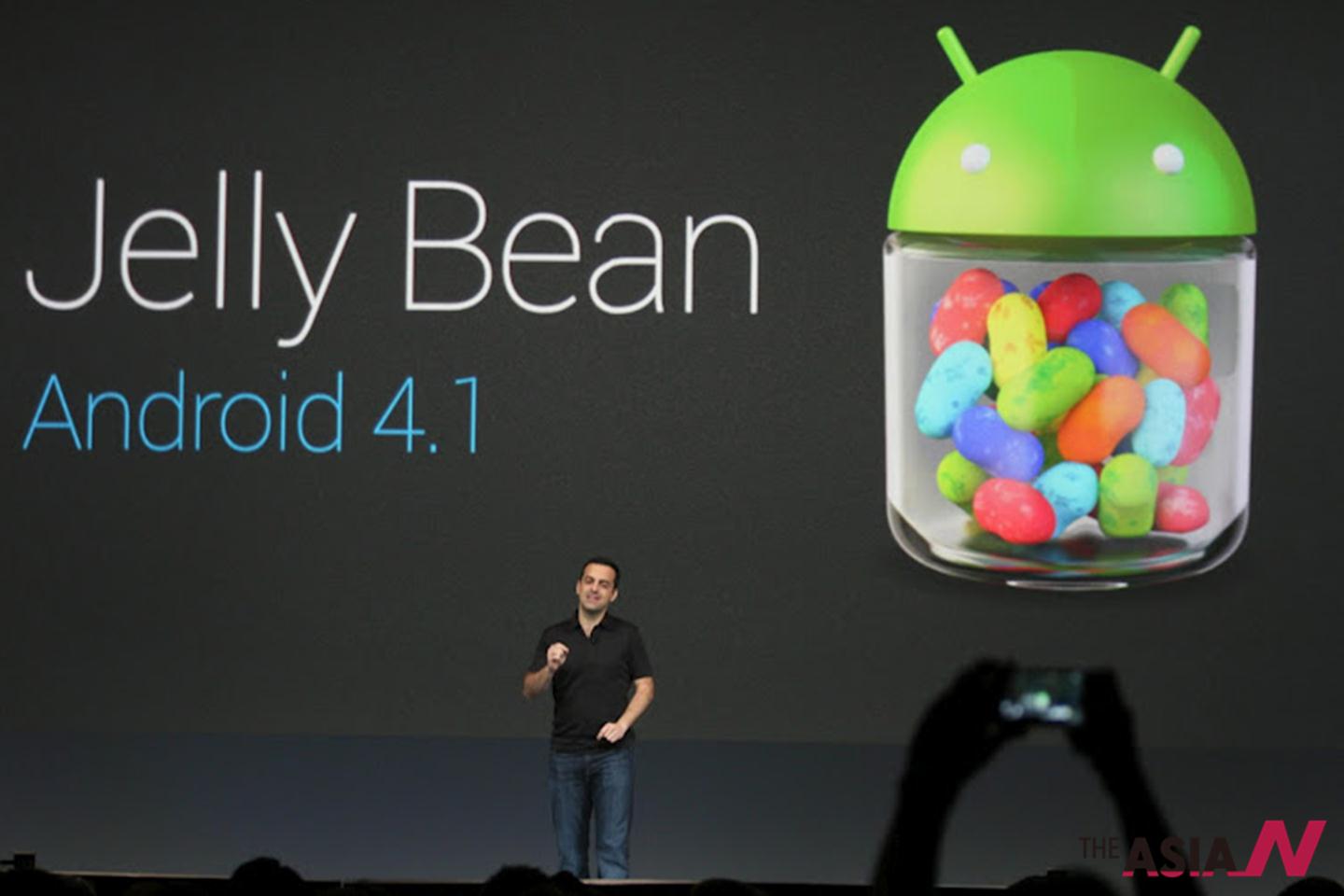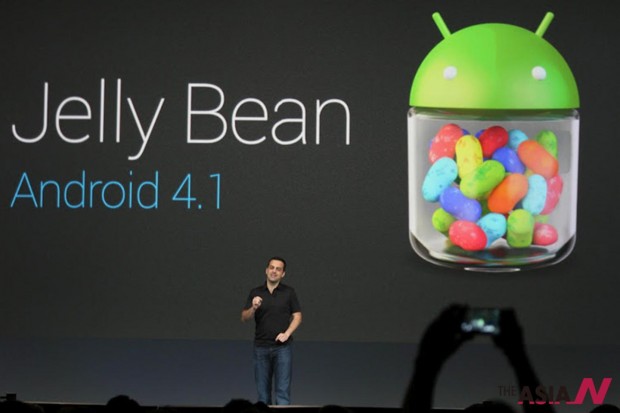
Google officially previews Android Jelly Bean; 1 mln Android activations daily
 Google yesterday officially pulled off the covers of its latest in its mobile operating system Android labelling it Jelly Bean at its annual Google I/O conference in San Francisco this year.
Google yesterday officially pulled off the covers of its latest in its mobile operating system Android labelling it Jelly Bean at its annual Google I/O conference in San Francisco this year.
“Jelly Bean builds on top of Ice Cream Sandwich. It makes everything smoother, faster and more fluid,” said Hugo Barra, Director of Product Management, Android.
Jelly Bean also known as Android 4.1 brings a host of new features to mobile operating system including Project Butter.
Project Butter was Google’s way of redefining smoothness in Jelly Bean, at the conference Google announced Project Butter would make Jelly Bean user interface as smooth as silk.
“The first thing we did was improve the system frame rate and make it consistent, in Jelly Bean we also introduced triple buffering in the graphics pipeline,” said Dave Burke, Engineering Director at Google speaking at the Google I/O conference.
Widgets have been given new features in Jelly Bean with automatic resizing in a cluttered screen along with the ability for the user to resize the widget.
“We also made text input on Android a whole lot better, in Jelly Bean we refined and re-tuned our dictionaries,” Barra observed.
“In Jelly Bean we shrunk the Google speech recognizer to fit on the device itself,” said Barra explaining to participants how voice typing on Google has become a whole lot easier allowing users to voice type while being offline as well.
“Making sure Android works for everyone also means improving accessibility, with Jelly Bean we are introducing Gesture Mode which enables blind users to reliably navigate the user interface (UI) using touch and swipe gestures in combination with speech output,” outlined Barra at the Google I/O conference.
The camera in Jelly Bean has been given a few touch ups as well, enabling users to review photos and share them immediately while clicking away, users will be able to view all photos at the same time on a film strip style allowing cropping and deleting all with simple gestures.
“Notifications are now more dynamic: if you’re late for a meeting or missed a call, you can email or call directly from notifications,” Barra posted on Android’s official blogspot. For example a user would be able to call back or email another user immediately from the notifications bar without having to open the app.
Jelly Bean will feature a new simple and cleaner keyboard along with offline voice recognition, “The keyboard is smarter and more accurate, and can predict your next word. And voice typing is faster, working even when you don’t have a data connection.”
Barra observed Google Search on Jelly Been had been revamped with three new features that included a newer UI, better voice search and a new feature called Google Now.
“From the very beginning Android had search at its core, with Jelly Bean we took a hard look at search and redesigned it from the ground up – first a new UI, second faster and more natural voice search and third a new feature we are calling Google Now,” he said.
“Today’s smart devices still rely on you to do pretty much everything—that is, until now. Google Now is a new feature that gets you just the right information at just the right time. It tells you today’s weather before you start your day, how much traffic to expect before you leave for work, or your favorite team’s score as they’re playing. There’s no digging required: cards appear at the moment you need them most,” Barra described Android’s latest features.
The Android applications store, Google Play has also been loaded with new features as its entertainment section will now have movies and TV shows for sale or rent.
“Now, you can also purchase movies in addition to renting them. And we’re adding television shows on Google Play—in fact, we’re adding thousands of episodes of broadcast and cable TV shows, like “Revenge,” “Parks & Recreation” and “Breaking Bad,” from some of the top studios, like ABC Studios, NBCUniversal and Sony Pictures.”
“More than 400 million Android devices have now been activated—up from 100 million last June. And twelve new Android devices are activated every every second—that’s more than 1 million a day,” said Barra. <Cihan>


